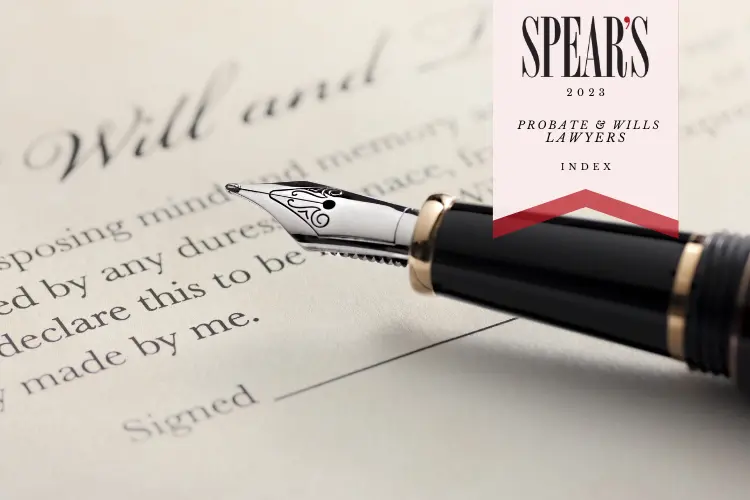13th February 2023 | Nicole Marmor | private wealth, residential real estate
Nicole Marmor, Head of the Sherrards Private Wealth department, highlights the importance of parents appointing Guardians in case the worst happens. She shares helpful questions you should consider.
If your children are under the age of 18, have you thought about who should care for them if both parents passed away?
According to research, seven out of ten parents in the UK parents do not have a legal guardian in place to care for their children in the event of their deaths.
If both parents with parental responsibility die and a guardian is not appointed in the will, then the courts will decide who looks after your children. There is no guarantee the court will appoint the person or people you would have chosen as guardians, so it is important to make the decision yourself.
Whilst a mother automatically has parental responsibility, unless the father is married to the mother, listed on the birth certificate, or a has court order bestowing parental responsibility on him, he will not automatically become the legal guardian if the mother dies.
A common misconception is that any children will automatically go to grandparents. This is not the case. In the absence of a will appointing the grandmother/ grandfather as guardian, it may be necessary to apply to court to formalize this appointment. In some scenarios, there is even the risk that children are taken into care while guardianship is clarified.
Additionally, while godparents can have a crucial role in the lives and upbringing of children, they have no legal rights in respect of children in the event that their parents die. If you wish your children’s godparents to also be their legal guardians, you should ensure such an appointment is made by will.
Deciding who the guardian(s) should be is a difficult decision, so when appointing the guardian(s) here are some things to consider:
- Do your children know the guardians? If so, what is their relationship like?
- Do the guardians have the financial ability to raise your child if your estate cannot cover all the costs?
- Do the guardians have similar beliefs, values, and outlook in life as you do?
- Where do the guardians live?
- What are the guardians ages?
- Are the guardians likely make similar decisions to those that you would have made yourself for your children?
Also bear in mind, if each parent appoints different guardians the guardians must agree on decisions relating to the children, and if they can’t, it will be for the court to decide.
Finally, it is worth noting that your chosen guardians do not have to accept the appointment, so it is important that you discuss it with them, and they accept the responsibility, before appointing them. However, providing your guardians are willing to accept the guardianship, you’ll have peace of mind you have done as much as possible to protect your children, even if you’re no longer around.


